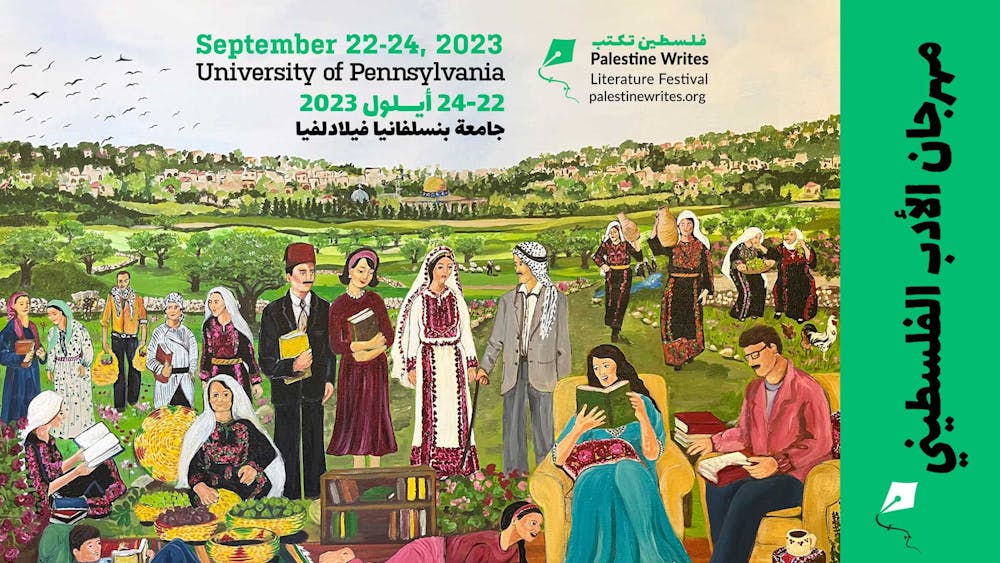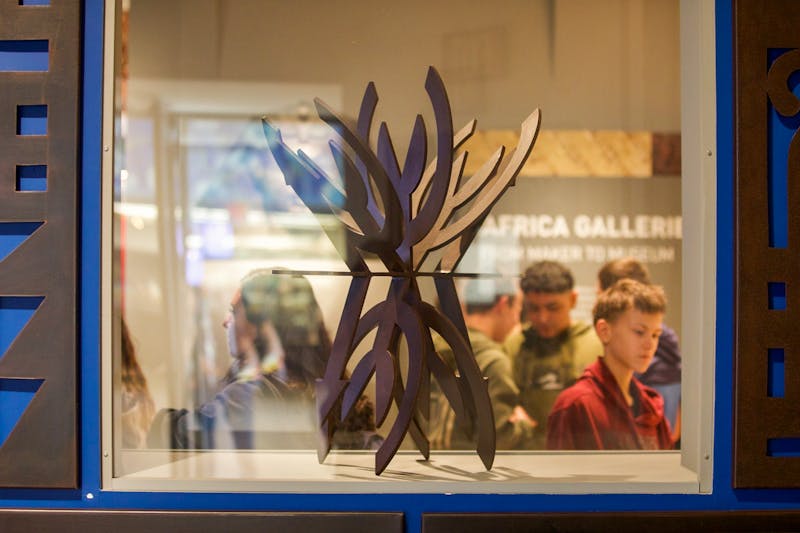
The Palestine Writes Literature Festival is set to take place at Penn from Sept. 22 to 24. The festival is a place for Palestinian artists and writers to convene, share their works and narratives, and celebrate Palestinian culture and resilience.
In the world of North American literature, Palestinian and Arab voices suffer from either extensive exclusion and censorship, or exploitative tokenization. This festival is an opportunity for Palestinians, and other marginalized groups, to come together outside of these exhausting barriers and build community around shared experiences, as well as exchange valuable knowledge and art.
For a land and a people who suffer from a history of colonialism, displacement, and erasure, the festival is an extremely important site of cultural preservation. The violence of settler colonialism extends far beyond the reality on the ground in Palestine and pervades every part of Palestinian existence, history, and cultural production. It is a violent machine which seeks to exterminate any semblance of Palestinian existence, including Palestinians’ narrative of their own history. We want and need a space on this campus where we can exist with agency, with our community and our friends from other marginalized communities.
Palestine Writes is a singular moment for us to honor our ancestors, celebrate the culture they created over millennia and bequeathed to us, and learn from our thinkers, writers, and artists who graciously agreed to speak and share their cultural productions. This festival is a space where we can foster and preserve our memories, stories and history, despite rapacious efforts to erase us and destroy our indigenous society.
For many Palestinians, the land lives through these stories and shared histories, and sharing them widely becomes an important practice for keeping the land alive through memory, paying respect to it, and promising it an eventual return.
While the festival was conceived as a space for fostering and celebrating Palestinian narratives, it has already been subject to a campaign that undermines its importance and pressures Penn to condemn it or to even cancel it, spurred by colonial racism. Although this is not something unusual for Palestinians and their supporters, it is extremely dangerous rhetoric which threatens several communities, one of which is the Palestinian and Arab student population on campus.
On a campus that does not provide a space or much resources for its Arab students, events like these are particularly important for us to gather and feel heard and seen. This event is also particularly important for Palestinian and Arab students whose only access to anything relating to their history and culture at Penn is mediated through a narrative that is not their own. Most of the very limited classes relating to the Middle East often frame the region through an imperialist lens as it relates to United States interests. An even smaller selection of classes is taught on any cultural production which emerges from the region, which makes Arab and Palestinian students feel extremely underrepresented and unimportant.
This festival is an opportunity for students to access our culture outside of these parameters and to reclaim the narrative of our history — of which we have been stripped for too long. It is also an opportunity for non-Arab students to have access to narratives about the region coming from people of the region.
The event provides a space for students to learn and build community around shared interests and beliefs, and Penn should commit to providing the resources and aid, which they promised, in order to serve its students and the surrounding Philadelphia community toward this end.
The objection from detractors of Palestine Writes is that the festival will make Jewish students feel unsafe, even frightened of wearing kippah or other religious adornments. This is an old, colonial narrative that posits Indigenous peoples as inherently violent, irrational, dark savages, which I will not dignify with a response. But I must say how disappointing and demoralizing it feels to know that the University has not challenged such racist assertions, accepting such denigration of our humanity as fact.
Palestinian and Arab students should feel like we belong at our University and that our experiences and narratives are validated. Penn should begin to work more intently towards achieving this goal, and one of the first ways to do this would be to support festival organizers in providing this important and much needed space for the community.
If the University were to submit to the threats of such campaigns rather than providing the needed support for the festival to run smoothly, it would be sending a message to its already alienated Arab and Palestinian students that we are not valued or respected. It would also be engaging with a very dangerous and violent form of censorship, to which Palestinians have been subjected for too long.
We, the Arab student population on campus, demand that Penn commits to providing us with the much-needed space to gather with our community by supporting the Palestine Writes Literature Festival and providing the resources it had promised in order for the festival to take place. We demand that Penn work to keep us safe, too. It is about time that Penn begins changing its behavior towards marginalized groups on campus and the greater Philadelphia community.
TARA TARAWNEH is a College junior studying comparative literature. Her email is tarawneh@sas.upenn.edu.
The Daily Pennsylvanian is an independent, student-run newspaper. Please consider making a donation to support the coverage that shapes the University. Your generosity ensures a future of strong journalism at Penn.
Donate






